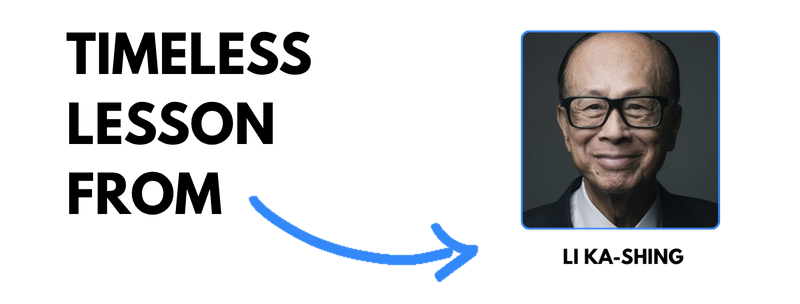Li Ka-shing: From Factory Floor to Asia’s “Superman”
His childhood was marked by hardship — his father died of tuberculosis when Li was just 15, forcing him to leave school and support his family.
Li Ka-shing was born on 13 June 1928 in Chaozhou, China. His childhood was marked by hardship — his father died of tuberculosis when Li was just 15, forcing him to leave school and support his family. He took a job in a plastics factory, working long hours for meager pay. From that starting point, he would rise to become one of the wealthiest and most respected businessmen in Asia.
Before we continue, a quick word from today’s sponsor:
There’s a reason mobile home parks are getting so much institutional love.
They remain one of the key affordable-housing sources nationally, have limited supply and high tenant retention (10-12Y). Investors can see tremendous upside with professionally-managed MHP portfolios such as Vintage Capital’s, which targets a 15-17% IRR and makes monthly distributions. Invest directly in individual deals or via a 10+ property fund. 1031s also available.
In 1950, at 22 years old, Li founded Cheung Kong Plastics, producing plastic flowers. With careful cost control and relentless attention to quality, his company became the largest supplier in Asia. From there, he expanded into real estate, buying properties in Hong Kong when prices were low in the 1960s and 70s.
Li’s timing was impeccable. As Hong Kong’s economy boomed, his investments multiplied in value. Cheung Kong grew into a conglomerate, eventually merging with Hutchison Whampoa and expanding globally. His empire spanned shipping, ports, telecommunications, retail, and energy — touching almost every corner of modern life.
By the 1990s and 2000s, Li was known as “Superman” in Hong Kong for his business acumen and ability to spot opportunities others overlooked. His companies operated in more than 50 countries, employing over 300,000 people.
Despite his wealth, Li was known for his humility and discipline. He lived simply, donated billions to education and healthcare, and mentored a generation of entrepreneurs. In 2018, after nearly seven decades in business, he formally retired, leaving behind a global legacy.
Discipline Builds Dynasties
Li Ka-shing’s empire was not built on flash or luck. It was built on discipline — saving aggressively, investing cautiously, and never spending beyond his means. Even as a billionaire, he reportedly wore simple watches and drove modest cars.
His philosophy was straightforward: live on less, reinvest the difference, and stay prepared for the next opportunity. That discipline turned a factory worker into one of the richest men in the world.
Success isn’t only about spotting opportunities — it’s about being ready when they arrive. Discipline isn’t glamorous, but over decades, it compounds into power few can match.
Until next time,
The Chronicler




